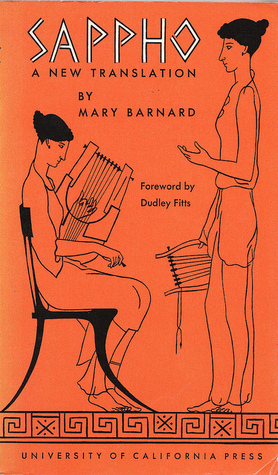Your rating:
Except for bits too small to render effectively, the hundred poems and fragments here translated into modern English speech and metric constitute virtually all of Sappho that has come down to us. Considered by the Greeks as their greatest lyric poet, she has long been the bane of translators. Most of her poems are emotional and personal, more in the form of colloquy than soliloquy: they are usually dialogues between Sappho and her friends, forthright attacks on her enemies, or exasperated exchanges with Aphrodite, the omnipotent and pitiless goddess who was both enemy and friend. But Sappho also composed more impersonal songs for girls' choruses to sing at weddings or at festivals in honor of Aphrodite. Even in the little we have left to us, a unique and fascinating woman comes to life, and gives us in flashes of vivid comment and description the very feminine world she lived in twenty-five hundred years ago. A temptation to which many translators of Sappho have succumbed is that of "spinning out" a fragment to make a poem. This, Mary Barnard has studiously avoided. Her translations are lean, incisive, direct. As a result, she has come closer than anyone else in English to "what they say she said."
Publication Year: 1958
No posts yet
Kick off the convo with a theory, question, musing, or update
No reviews yet
Share a rating or write a review
